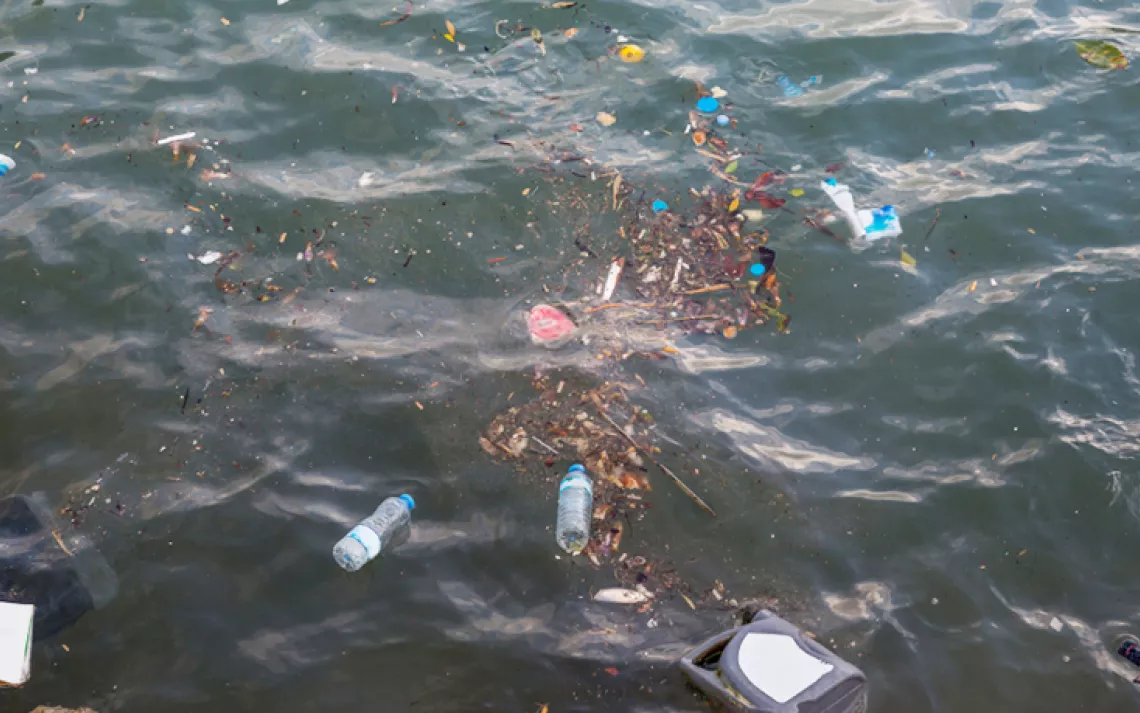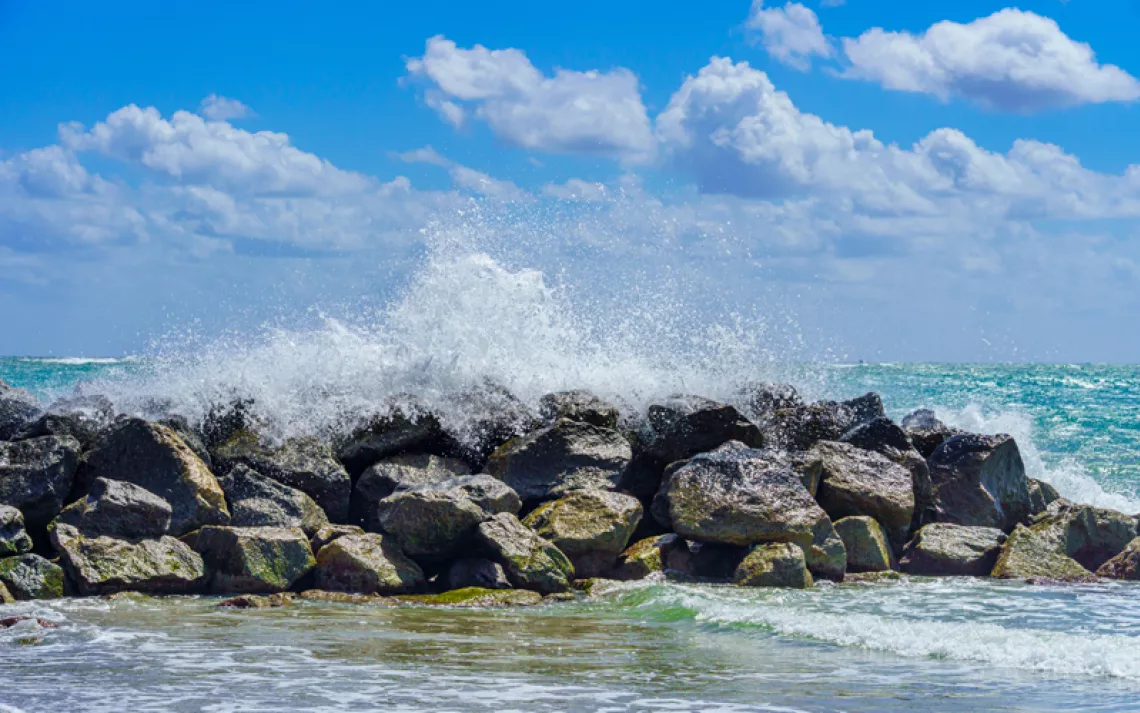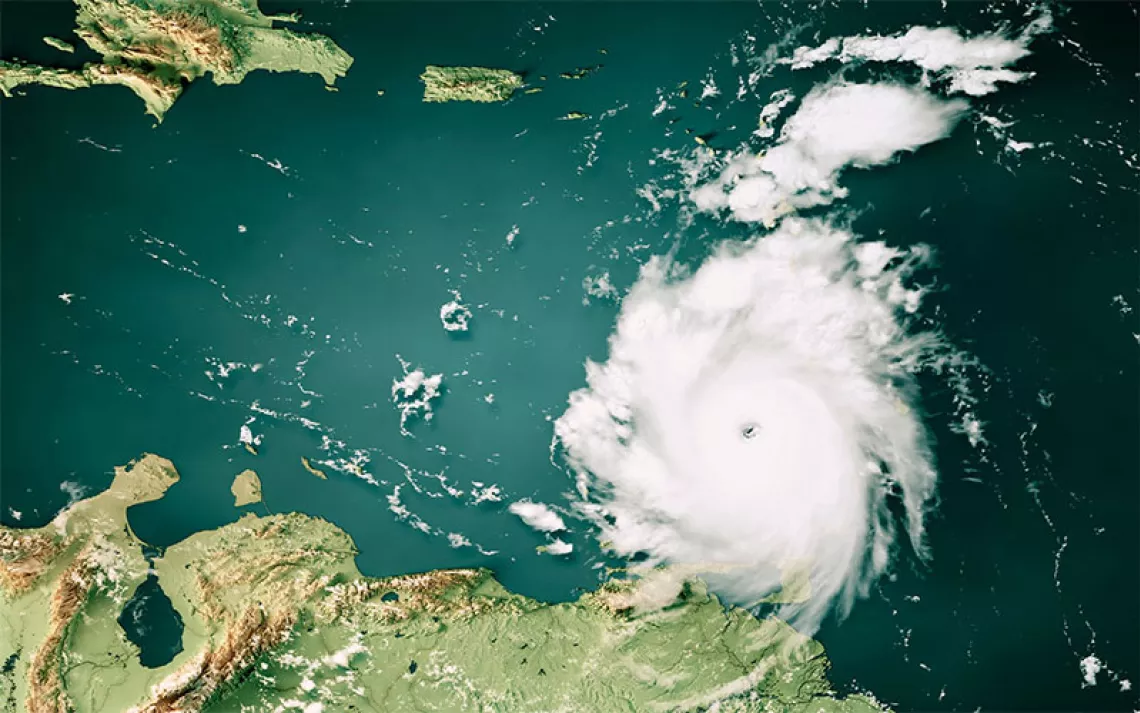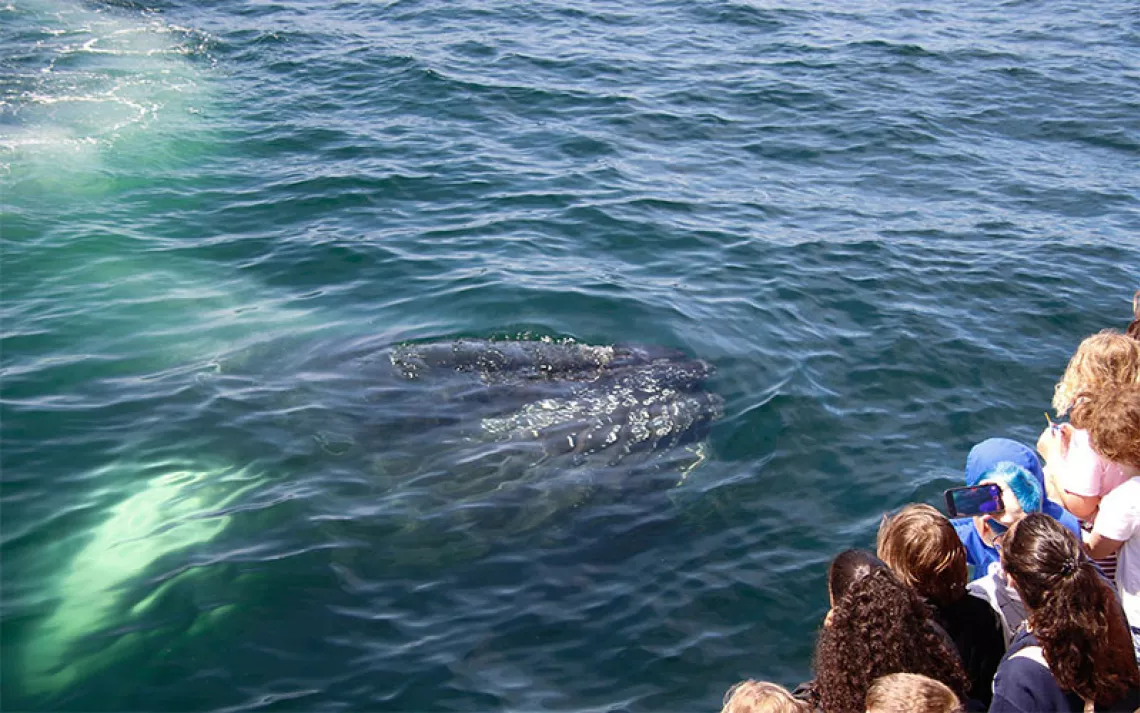Hey Mr. Green, How Big Are the Oceans' Trash Patches?

Photo by iStock/Mermusta
Hey Mr. Green,
The world's oceans have gyres, where much of our trash ends up. Is most of this debris plastic? What's the estimated tonnage in these trash patches (some of which are said to be larger than the entire U.S.), and how densely are they packed?
—Georgene in Clinton, Washington
There's a popular image of the oceans' garbage patches as huge, solid islands of disgusting trash, but only somebody who thinks he's Jesus would be crazy enough to try to walk on one. In fact, clots of closely packed debris are rare in the vast oceans, except in occasional eddies where fishnets, bottles, balls, and toothbrushes — and much more — agglomerate.
Between 60 to 95% of marine litter is plastic, and about 270 species are harmed or killed by becoming entangled in it or ingesting large pieces. Nobody knows the total tonnage, but some estimates say that 7 million tons of plastic end up in the oceans every year. (One whale washed up on the coast of France with a whole ton of plastic, including supermarket bags, in its belly.)
While some landlubbers fret (excessively, in my opinion) because plastic "doesn't biodegrade in the landfill," the truth is that its synthetic polymers do biodegrade from the action of some bacteria. As they disintegrate in the ocean, they release carbon dioxide and byproducts such as hydrogen peroxide, which may interfere with the absorption of CO2.
Microplastics, from bigger than a grain of rice down to the thickness of two human hairs, may also pose subtler threats to marine life. The particles attract high concentrations of toxics such as polychlorinated biphenyls (PCBs), and since they're so small, the exposure is constant.
Because most of the research on these matters has been recent and limited, it's hard to predict the long-term biochemical effects.That alone should scare us into not dumping plastic: Much of the ocean detritus is tossed by ordinary litterbugs, not commercial boats. So the old adage of "reduce, reuse, and recycle" gets recycled once more.—Bob Schildgen
 The Magazine of The Sierra Club
The Magazine of The Sierra Club



